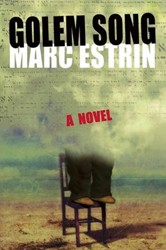Helene Wursich’s German life encompasses two world wars and the years surrounding them. How did the people and events touching and swirling around her determine the dramatic story that led to her own eventual
“blindness of the heart?”
The reader is immediately drawn into this foreboding, relentless, psychological, emotional, and notable saga. Julia Franck’s first novel to be translated into English is based on her father’s real-life childhood abandonment.
We become involved and fascinated with the complicated Helene as she grows up in a small German town. She is the daughter of a respected printer and a “foreign” (Jewish) mother who suffers from mental illness and a “blindness of the heart.” This is a blindness Helene and her sister, Martha, hate and hope never to emulate. Helene aspires to be a doctor, but learns the printing business as the recession takes hold, watches her father die of World War I wounds, and eventually becomes a nurse. She moves to Berlin and lives within a sophisticated and partying society where drugs and sex abound. She finds herself a distant onlooker and morally apart from this world.
While the book deeply engages in Helene’s individual story, world events that fuel and guide her life are often only alluded to and serve as subtle backdrops hovering over Helene’s story. Exact years are not usually mentioned, but historical clues move the reader through the decades. Helene witnesses and notes in detail the disturbing events around her, but she does so without passing judgment or engaging in any active participation. She doesn’t seem to grasp or understand the enormity of these events and her personal choices.
How do ordinary people survive monstrous times? How do they find solace, solutions, and validation? What really drives Helene to her final betrayal? The book’s dramatic and shattering prologue and epilogue skillfully portray “the blindness of the heart.”
Renita Last is a member of the Nassau Region of Hadassah’s Executive Board. She has coordinated the Film Forum Series for the Region and served as Programming and Health Coordinators and as a member of the Advocacy Committee.
She has volunteered as a docent at the Holocaust Memorial and Tolerance Center of Nassau County teaching the all- important lessons of the Holocaust and tolerance. A retired teacher of the Gifted and Talented, she loves participating in book clubs and writing projects.




